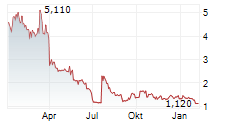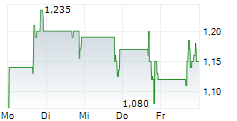New data shows Telomir-1 fully reverses STAT1 gene silencing by DNA methylation - a key immune regulator suppressed in cancer - delivering stronger epigenetic effects than Paclitaxel or Rapamycin in aggressive PC3 tumor models.
MIAMI, FL / ACCESS Newswire / July 18, 2025 / Telomir Pharmaceuticals, Inc. (NASDAQ:TELO), a preclinical-stage biotechnology company developing therapies that target the root causes of biological aging and age-related diseases, today announced compelling new preclinical findings highlighting Telomir-1's ability to reverse epigenetic gene silencing in aggressive human prostate cancer cells-achieving greater efficacy than Paclitaxel and Rapamycin in restoring the STAT1 tumor suppressor.
STAT1, a master regulator of immune surveillance and programmed cell death, is frequently silenced in advanced cancers through promoter hypermethylation. In this state, cancer cells effectively disable one of the body's key defense mechanisms-shutting down immune detection and blocking signals that would normally trigger their death. In this newly reported study, Telomir-1 administered orally over 21 days in a mouse model implanted with aggressive human prostate cancer cells (PC3 xenograft) fully reversed this hypermethylation in a dose-dependent fashion. In contrast, Paclitaxel (PTX) showed no effect, and Rapamycin achieved only partial reduction of hypermethylation of STAT1.
By restoring STAT1 activity, Telomir-1 may be reawakening the body's built-in tumor suppressor system-allowing immune cells to once again recognize, target, and eliminate cancer. This mechanism offers a potential explanation for the tumor shrinkage observed by Telomir-1 and highlights a biological pathway not addressed by standard chemotherapy.
"This study provides novel and direct molecular evidence of Telomir-1's ability to reprogram cancer epigenetics," said Erez Aminov, CEO of Telomir. "By potentially restoring the function of key tumor suppressor genes like STAT1, we're not just slowing tumor growth-we're turning the immune system back on. These results highlight Telomir-1's potential as a powerful new approach to treating aggressive cancers as combination therapy with cancer immunomodulators."
In addition to STAT1, Telomir-1 also reduced hypermethylation of TMS1 (also known as ASC or PYCARD), a pro-apoptotic tumor suppressor commonly silenced in prostate cancer. While PTX and Rapamycin showed comparable or greater effects on TMS1 methylation, Telomir-1 is unique in its ability to modulate both STAT1 and TMS1-two genes that together regulate immune response and apoptosis.
Importantly, TMS1 also plays a central role in inflammasome activation, which not only contributes to tumor cell death but also supports the immune system's ability to detect and clear abnormal cells. When TMS1 is hypermethylated, this immune signaling pathway is disrupted-reducing caspase-1 activation and inflammatory cytokine release. This can impair immune surveillance and allow cancer cells to persist undetected. By reducing TMS1 hypermethylation, Telomir-1 may help restore immune recognition and enhance the tumor's sensitivity to both chemotherapy and immunotherapy.
"PC3 cells are notoriously aggressive and resistant to treatment," said Dr. Itzchak Angel, Chief Scientific Advisor at Telomir. "The potential simultaneous reactivation of STAT1 and TMS1 by inhibition of the regulatory hypermethylation suggests that Telomir-1 may help overcome two of the biggest hurdles in cancer biology-immune evasion and apoptosis resistance. This dual action could help explain the tumor suppression observed in our earlier studies. It may also offer a potential novel horizon for Telomir-1 as an associated therapy with immunosuppressors and chemotherapies."
Selective Action on Telomeres Reinforces Safety
Importantly, in this study we have also found that Telomir-1 did not elongate telomeres in the cancerous prostate cells (PC3)-a critical finding that reinforces its cancer safety profile. While telomere elongation is a therapeutic goal in degenerative and aging-related diseases, in cancer cells, longer telomeres can fuel unchecked growth. PC3 cells already maintain short but stable telomeres via telomerase-a hallmark of malignancy. The fact that Telomir-1 exerted strong biological effects without increasing telomere length supports its selectivity in targeting telomere maintenance where appropriate.
Distinct and unique Mechanism
These new insights build upon findings previously announced on March 19, 2025, where Telomir-1 was shown to reduce tumor volume by approximately 50% and eliminate chemotherapy-induced mortality when combined with Paclitaxel in the same prostate cancer model. That study also suggested Telomir-1's metal ion-regulating properties may mitigate oxidative stress-further protecting healthy cells from chemotherapy toxicity.
Advancing Toward the Clinic
Telomir is conducting ongoing research to evaluate Telomir-1 across multiple therapeutic areas, including oncology, Wilson's disease, age-related macular degeneration (AMD), autism spectrum disorder, and dysphonia. The company is continuing preclinical development across these programs and plans to announce its initial IND indication at a future date.
"We remain encouraged by the preclinical data and continue to explore Telomir-1's potential across several disease areas," added Aminov. "Our team is committed to advancing this program thoughtfully and strategically as we move toward clinical development."
For more information, visit www.telomirpharma.com.
Cautionary Note Regarding Forward-Looking Statements
This press release, statements of Telomir's management or advisors related thereto, and the statements contained in the news story linked in this release contain "forward-looking statements," which are statements other than historical facts made pursuant to the safe harbor provisions of Section 27A of the Securities Act of 1933, as amended, and Section 21E of the Securities Exchange Act of 1934, as amended. These risks and uncertainties include, but are not limited to, the potential use of the data from our studies, our ability to develop and commercialize Telomir-1 for specific indications, and the safety of Telomir-1.
Any forward-looking statements in this press release are based on Telomir's current expectations, estimates and projections only as of the date of this release. These and other risks concerning Telomir's programs and operations are described in additional detail in its Annual Report on Form 10-K for the fiscal year ended December 31, 2024, which are on file with the SEC and available at www.sec.gov. Telomir explicitly disclaims any obligation to update any forward-looking statements except to the extent required by law.
Contact Information
Helga Moya
info@telomirpharma.com
(786) 396-6723
SOURCE: Telomir Pharmaceuticals, Inc.
View the original press release on ACCESS Newswire:
https://www.accessnewswire.com/newsroom/en/healthcare-and-pharmaceutical/telomir-demonstrates-telomir-1-reverses-epigenetic-gene-silencing-of-1049890


